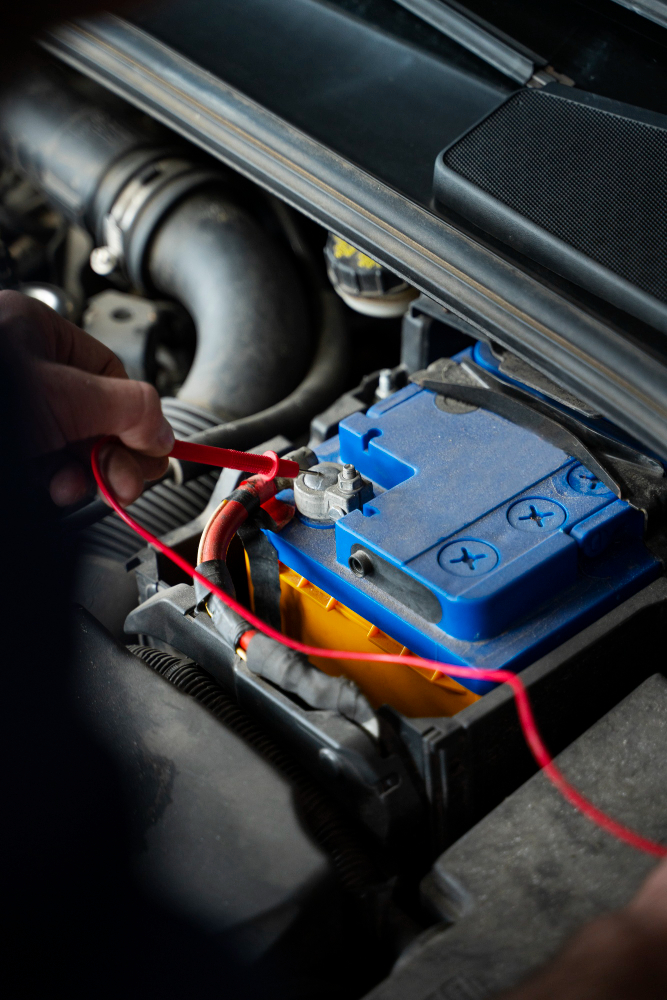Maintaining your vehicle is not just about avoiding breakdowns—it’s about preserving its value, enhancing safety, and improving performance over the long haul. Whether you drive a brand-new SUV or a trusty old sedan, a proactive approach to car care can save you thousands of dollars and countless headaches.
Today’s vehicles are more technologically advanced than ever, and with features like engine diagnostics becoming standard, drivers have more tools than ever to keep their vehicles running smoothly. In this guide, we’ll explore essential maintenance tips that every car owner should know to extend vehicle life and ensure top-tier performance.
Routine Oil Changes: The Lifeblood of Your Engine
One of the most crucial maintenance steps is ensuring regular oil changes. Engine oil lubricates internal components, reduces friction, and helps keep the engine cool. Over time, oil breaks down and collects debris, which can hinder performance and cause serious engine damage if ignored.
Car manufacturers typically recommend oil changes every 5,000 to 7,500 miles, but it can vary based on the vehicle type and oil used. Synthetic oils, for example, offer longer-lasting protection and might stretch intervals up to 10,000 miles. However, always consult your owner’s manual or engine diagnostics system for the best guidance.
Failing to change oil on schedule can lead to sludge buildup and reduced fuel efficiency. Over time, these issues can cause premature engine wear or even a complete engine failure—an expensive problem that could easily be prevented with timely oil servicing.
Pay Attention to Engine Diagnostics: What Your Car Is Telling You
Modern vehicles come equipped with onboard diagnostics systems that constantly monitor your engine’s performance. These systems can detect problems early, often before you notice any symptoms, by triggering a warning light on your dashboard.
Common engine diagnostics alerts include the check engine light, transmission errors, or sensor failures. With a basic OBD-II scanner or a mobile app, you can get a readout of these codes and understand what’s wrong—empowering you to make informed maintenance decisions.
Ignoring engine diagnostics alerts can lead to worsening problems and higher repair costs. For instance, a misfiring cylinder might seem like a minor issue at first but could eventually damage your catalytic converter. Staying attentive to these alerts is an essential step in preserving both your engine and your wallet.
Tire Maintenance: Stay Safe and Save Fuel
Tires are often overlooked in vehicle maintenance, yet they play a vital role in your car’s safety and performance. Worn-out or improperly inflated tires can reduce traction, lower fuel efficiency, and even cause dangerous blowouts on the road.
Regularly checking tire pressure—at least once a month—is a simple habit that pays off. Under-inflated tires increase rolling resistance, forcing your engine to work harder and burn more fuel. Over-inflated tires, on the other hand, may wear unevenly and compromise grip.
Additionally, rotating your tires every 6,000 to 8,000 miles helps ensure even tread wear and prolongs tire life. Don’t forget to get your wheels aligned periodically as well. Misalignment can cause your vehicle to drift, put stress on the suspension, and wear down tires prematurely.
Brake Checks: Stop Problems Before They Start
Brakes are one of the most critical safety systems in your vehicle. Over time, brake pads wear down and need to be replaced. Ignoring the signs—like squeaking, grinding noises, or a soft brake pedal—can lead to reduced braking power or complete failure.
To ensure your brakes are in top condition, have them inspected during oil changes or every 10,000 miles. Most brake systems today are monitored by sensors that alert you through engine diagnostics systems when pads or rotors need attention.
Proper brake maintenance not only protects you and your passengers but also prevents damage to more expensive parts like brake rotors and calipers. Investing in routine brake care is far less expensive than repairing or replacing an entire braking system.
Battery Health: Keep Your Car Energized

Your car battery plays a critical role in starting the engine and powering electronic components. While most batteries last three to five years, extreme weather and heavy electrical use can shorten their lifespan.
Keep your battery terminals clean and corrosion-free, and regularly test the voltage using a multimeter. A reading below 12.4 volts could indicate a failing battery, especially if you’re experiencing dim headlights or sluggish starts.
Many vehicles today include battery monitoring as part of their engine diagnostics system. These tools provide real-time data, allowing you to track battery health and anticipate replacements before you’re stranded with a dead battery.
Fluid Levels and Filters: Small Details, Big Impact
Fluids are the unsung heroes of your car’s mechanical health. From coolant and brake fluid to transmission and power steering fluids, each plays a crucial role in keeping systems running efficiently.
Low or dirty fluids can lead to overheating, reduced performance, or mechanical failure. Make it a habit to check all fluid levels monthly and top them up as needed. Don’t forget to flush and replace fluids at intervals recommended by your vehicle manufacturer.
Air and cabin filters also deserve regular attention. The engine air filter helps ensure optimal combustion by keeping dirt out of the air intake, while the cabin filter improves air quality inside the vehicle. Dirty filters can reduce performance and fuel economy—issues easily identified with a basic engine diagnostics scan.
Cooling System Care: Prevent Overheating
Overheating is one of the most serious threats to your vehicle’s engine. The cooling system—composed of a radiator, water pump, hoses, and coolant—works together to dissipate heat and maintain optimal engine temperature.
Regularly inspect coolant levels and top off if needed. Be alert for leaks, especially around hoses and the radiator. It’s also important to flush the coolant system every 30,000 miles or as advised by your car’s manufacturer.
Overheating can cause catastrophic engine damage, including warped heads or blown gaskets. Fortunately, many modern cars include temperature sensors and engine diagnostics tools that alert you before problems escalate.
Keep It Clean: More Than Just Looks
Keeping your car clean isn’t just about aesthetics—it’s also about protection. Dirt, salt, and grime can corrode your paint job and undercarriage, especially during winter months.
Regular washing and waxing can prevent rust and extend the life of your exterior finish. Inside the cabin, cleanliness promotes comfort and helps maintain resale value. Don’t forget to vacuum carpets, wipe down surfaces, and clean windows regularly.
Additionally, many newer vehicles include sensors and cameras as part of their advanced safety features. Keeping these components clean ensures they function properly and don’t trigger unnecessary engine diagnostics alerts.
The Importance of Regular Inspections and Professional Servicing
While DIY maintenance is important, professional inspections provide a deeper layer of assurance. Mechanics can identify issues that aren’t obvious to the average driver, using specialized tools and in-depth engine diagnostics systems.
It’s recommended to schedule a full inspection annually or before long road trips. A thorough check-up can spot early signs of engine trouble, transmission issues, or worn suspension components—allowing you to address them before they evolve into major repairs.
Even if your car seems to run fine, don’t underestimate the importance of expert diagnostics. Preventive care costs far less than reactive repairs and contributes to a longer, healthier vehicle lifespan.
Final Thoughts: Long-Term Benefits of Proactive Maintenance
Proper vehicle maintenance isn’t a luxury—it’s a necessity. It safeguards your investment, ensures your safety, and supports optimal performance on the road. With the help of modern tools like engine diagnostics and a disciplined maintenance schedule, even older cars can run efficiently for years.
By investing a little time and attention into your vehicle each month, you can avoid costly repairs, extend the life of key components, and enjoy a more reliable driving experience. And as the automotive landscape continues to evolve, staying ahead of your vehicle’s maintenance needs will only become more essential.

